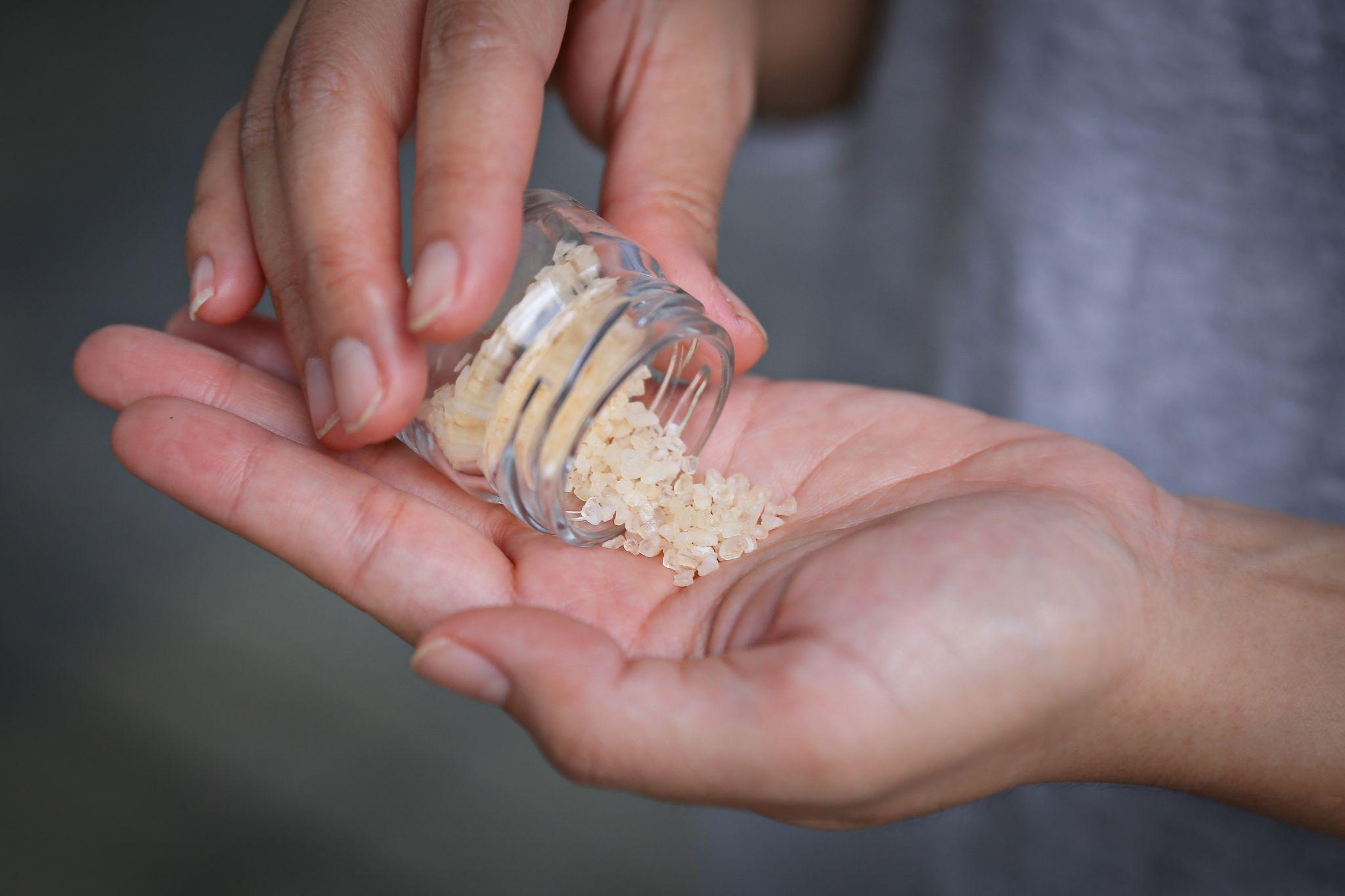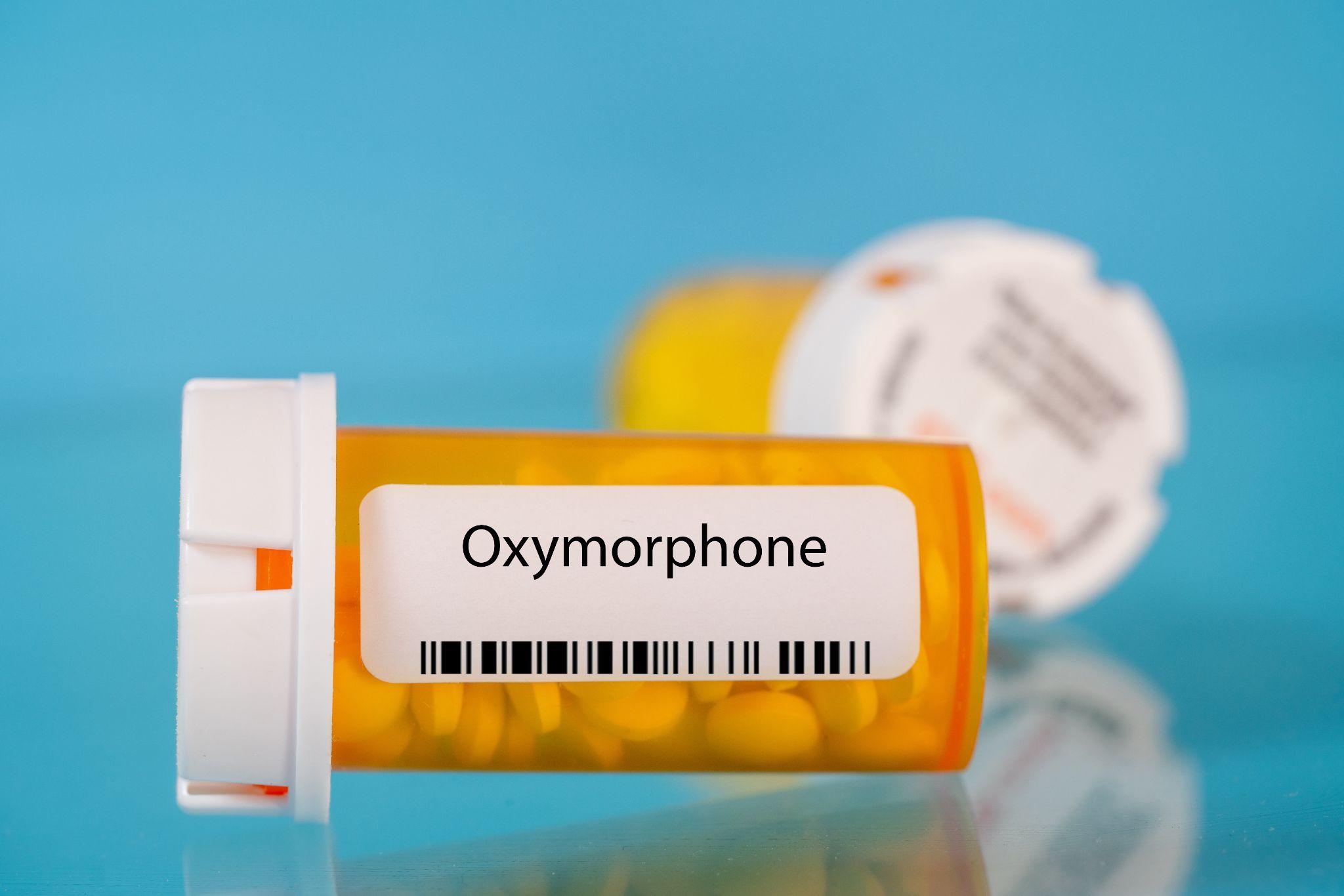
Our Addiction Resources
Navigating the world of addiction and recovery can be overwhelming. We’re here to provide clear, compassionate education and guidance. From practical advice for maintaining sobriety to informational guidance on the long-term effects of substance abuse, our content is a beacon of hope and understanding.
Our Team is Ready are ready to take your call
Call us Today!
or we can call you. Fill out form below
Our Blog

How Stress Impacts Physical & Mental Health
Stress is an inevitable part of life. Whether it’s due to work, relationships, financial pressures, or other challenges, everyone experiences stress at some point. While a certain amount of stress is normal and can even be beneficial in short bursts, chronic stress—stress that persists over an extended period—can have profound effects on both physical and mental health.
Understanding stress’s impact on health is important, as it can not only deteriorate your well-being but also lead to serious conditions, including addiction. Below, we’ll explore how stress affects your body and mind, and how these effects can increase the likelihood of developing addictive behaviors.
A Closer Look at Stress
Stress is the body’s natural response to any demand or challenge, serving as a crucial mechanism to help us navigate difficult situations. It comes in two primary forms: acute and chronic.
Acute stress is short-term and typically triggered by specific events like a job interview or a looming deadline, often providing the necessary energy and focus to overcome immediate challenges.
However, chronic stress, which results from ongoing issues like financial problems, work pressures, or strained relationships, can be far more damaging. Unlike acute stress, which subsides after the event passes, chronic stress keeps the body in a prolonged state of alertness, leading to an overproduction of cortisol and other stress hormones like cortisol and adrenaline.
This continuous stress response can disrupt almost every system in the body, contributing to physical ailments such as high blood pressure and digestive issues, while also exacerbating mental health problems like anxiety and depression.
Physical Health Effects of Long-Term Stress
Chronic stress can lead to a wide range of physical health issues, affecting nearly every system in the body. Below are some of the key physical health effects of long-term stress:1
- Cardiovascular Issues: Chronic stress often results in increased blood pressure and a higher risk of heart disease and stroke due to the continuous strain on the cardiovascular system.
- Immune System Suppression: Long-term stress weakens the immune system, making the body more vulnerable to infections and slowing down the healing process.
- Muscular and Skeletal Problems: Persistent stress causes muscle tension, particularly in the neck, shoulders, and back, which can lead to chronic pain and worsen conditions like arthritis.
- Digestive System Disorders: Stress can disrupt the digestive system, leading to conditions such as irritable bowel syndrome (IBS), ulcers, and acid reflux, as well as general discomfort.
- Sleep Disorders: Chronic stress often leads to difficulty falling asleep, staying asleep, or achieving restful sleep, which further exacerbates stress and contributes to other health issues.
Mental Health Effects of Long-Term Stress
Long-term stress significantly impacts mental health, contributing to a variety of psychological challenges. Here are some of the major mental health effects of chronic stress:1,2
- Anxiety and Depression: Chronic stress can lead to or worsen anxiety disorders and depression, with persistent feelings of worry or dread becoming overwhelming.
- Cognitive Impairment: Stress impairs cognitive functions, making it difficult to concentrate, remember things, and make decisions, which can lead to mental fatigue and frustration.
- Emotional Dysregulation: Prolonged stress often results in increased irritability, mood swings, and emotional outbursts, making it harder to manage emotions and maintain healthy relationships.
- Development of Mental Health Disorders: Chronic stress can act as a trigger for the onset of serious mental health disorders, such as post-traumatic stress disorder (PTSD) or obsessive-compulsive disorder (OCD).
The Link Between Stress and Addiction
Chronic stress not only impacts physical and mental health but also significantly increases the risk of addiction. When stress becomes overwhelming, many individuals turn to substances or compulsive behaviors as a coping mechanism, seeking temporary relief from their discomfort.
This often leads to a dangerous cycle where the initial stress relief provided by substances like alcohol, drugs, or behaviors such as gambling or overeating gradually develops into dependency. The brain’s reward system, triggered by these substances, begins to associate stress relief exclusively with the addictive behavior, making it increasingly difficult to break free.
Additionally, chronic stress lowers self-control and impairs decision-making, further entrenching the cycle of addiction. This strong link between stress and addiction highlights the importance of effective stress management to prevent the onset of substance dependence.3

Managing Stress to Prevent Health Issues
Effectively managing stress is crucial for maintaining both physical and mental health, and it plays a key role in preventing the development of addictive behaviors. There are several strategies that can help in breaking the cycle of stress and addiction:
- Stress Management Techniques
Incorporating mindfulness practices, deep breathing, meditation, yoga, and relaxation techniques into daily routines can help reduce your stress levels and improve overall well-being. Regular physical exercise and a healthy diet also play essential roles in managing stress. - Seeking Professional Help
It’s important to recognize when stress becomes unmanageable and to seek help from a therapist or counselor. Professional support can provide coping strategies, and therapy or support groups can offer guidance in dealing with both stress and addiction. - Building Healthy Habits
Developing routines that promote relaxation and stress reduction, such as setting aside time for hobbies, socializing, or simply unwinding, can help in maintaining balance. Establishing a consistent sleep schedule and prioritizing self-care are also critical components of stress management. - Early Intervention for Addiction
Addressing signs of addiction early, before they become deeply entrenched, is vital. Seeking help through counseling, addiction treatment programs, or support groups can prevent the escalation of both stress and addiction.
Taking Control of Stress and Addiction
Managing stress is essential for safeguarding both your physical and mental health, and it’s crucial in preventing the development of addiction.
At Lumina Recovery, we understand the profound impact that chronic stress can have on your life, and we’re here to help you break free from the cycle of stress and addiction. Our comprehensive addiction recovery programs are designed to address not only the symptoms of addiction but also the underlying stressors that contribute to it.
Through our specialized stress dual diagnosis program, we provide integrated treatment that simultaneously tackles both stress and addiction, offering you a path to lasting recovery.
If you or a loved one are struggling with stress-related addiction, don’t wait—reach out to Lumina Recovery today and take the first step towards a healthier, more balanced life.
Sources:

What You Should Know About Psychological Withdrawal
When it comes to addiction recovery, much attention is often given to the physical symptoms of withdrawal, but the emotional and mental challenges can be just as significant. Psychological withdrawal is a complex process that affects the mind and emotions, often leading to feelings of anxiety, depression, and intense cravings. Understanding what psychological withdrawal entails is essential for navigating the recovery journey effectively.
Below, we’ll explore the key aspects of psychological withdrawal, including its symptoms, how it differs from physical withdrawal, and the various ways to find support.
What Is Psychological Withdrawal?
Psychological withdrawal refers to the emotional and mental challenges a person faces when they stop using a substance or behavior they have become dependent on. Unlike physical withdrawal, which involves tangible symptoms like sweating, nausea, or tremors, psychological withdrawal manifests in the mind.
It can include feelings of anxiety, depression, irritability, and an intense craving for the substance or behavior that has been removed. These symptoms can be just as distressing and difficult to manage as physical withdrawal, making it crucial to understand and address them properly.
Psychological withdrawal is a common experience for individuals recovering from addiction to substances like alcohol, drugs, or even behaviors like gambling. The brain, accustomed to the artificial stimulation provided by the addictive substance or activity, struggles to regain balance. This struggle often leads to emotional disturbances that can hinder the recovery process.
Psychological Withdrawal Symptoms
The symptoms of psychological withdrawal can vary widely depending on the substance or behavior involved, the duration of use, and the individual’s mental health. However, some common symptoms include:1,2
- Anxiety and Panic Attacks: The brain’s chemical balance is disrupted during withdrawal, leading to heightened anxiety levels and, in some cases, panic attacks. This can make the person feel constantly on edge, overwhelmed, or fearful without a clear cause.
- Depression: The absence of the addictive substance or behavior can result in a drop in mood-regulating chemicals like serotonin and dopamine, leading to feelings of sadness, hopelessness, and a lack of interest in previously enjoyable activities.
- Irritability and Anger: Without the substance or behavior to provide relief, the person may become easily frustrated or angry. This can strain relationships and make the recovery process even more challenging.
- Cravings: Intense desires to use the substance or engage in the behavior are common. These cravings can be triggered by various factors, including stress, certain environments, or even specific memories.
- Insomnia and Sleep Disturbances: Withdrawal can disrupt sleep patterns, leading to difficulty falling asleep, staying asleep, or experiencing restful sleep. This lack of sleep can exacerbate other symptoms like anxiety and irritability.
- Difficulty Concentrating: The brain’s adjustment period during withdrawal can make it hard to focus or think clearly. This can affect work, study, and daily decision-making.
- Emotional Instability: Mood swings are common during psychological withdrawal, with individuals experiencing sudden shifts in emotions without apparent triggers.
These symptoms can range from mild to severe, depending on the person’s level of dependency and overall mental health. It’s important to note that while psychological withdrawal symptoms can be overwhelming, they are a natural part of the recovery process and typically diminish over time.
Physical vs. Psychological Withdrawal
While both physical and psychological withdrawal are challenging, they differ in how they manifest and affect the individual.
Physical Withdrawal: This type involves the body’s response to the absence of a substance it has grown dependent on. Common physical withdrawal symptoms include nausea, vomiting, headaches, muscle pain, sweating, and tremors. These symptoms are often more immediately noticeable and can be life-threatening in severe cases, such as with alcohol or opioid withdrawal. Physical withdrawal is generally shorter in duration, with symptoms peaking and subsiding within a few days to weeks, depending on the substance.
Psychological Withdrawal: Unlike physical withdrawal, psychological symptoms are rooted in the mind and emotions. They can last much longer, often persisting for weeks, months, or even years after the last use of the substance or engagement in the behavior. Psychological withdrawal can be more challenging to address because it requires a deep understanding of the underlying mental health issues and triggers associated with addiction. Without proper management, these symptoms can lead to relapse.
It’s important to recognize that while physical withdrawal may seem more severe due to its tangible symptoms, psychological withdrawal can be just as debilitating and requires careful attention and support during the recovery process.

Getting Help for Psychological Withdrawal
Recovering from psychological withdrawal is not something anyone should face alone. The emotional and mental challenges can be overwhelming, making it crucial to seek help and support during this time. There are several ways to get the help needed:
- Comprehensive Treatment Programs: For some, enrolling in a comprehensive addiction treatment program that addresses both physical and psychological aspects of withdrawal may be the best course of action. These programs often include medical supervision, therapy, and support groups, providing a well-rounded approach to recovery.
- Professional Counseling and Therapy: Working with a therapist or counselor who specializes in addiction can provide invaluable support. Cognitive behavioral therapy (CBT), for example, can help individuals identify and change negative thought patterns that contribute to cravings and emotional instability. Therapy also offers a safe space to explore the underlying issues that led to the addiction in the first place.
- Support Groups: Connecting with others who are going through similar experiences can provide a sense of community and understanding. Support groups like Narcotics Anonymous (NA), Alcoholics Anonymous (AA), or other specialized groups offer a platform to share struggles, successes, and coping strategies.
- Medication: In some cases, medication may be prescribed to help manage psychological withdrawal symptoms. Antidepressants, anti-anxiety medications, or other psychiatric drugs can help stabilize mood and reduce cravings. However, medication should always be used under the supervision of a healthcare professional.
- Mindfulness and Relaxation Techniques: Practices such as mindfulness meditation, yoga, or deep-breathing exercises can help manage anxiety, stress, and other emotional symptoms. These techniques can also improve sleep and concentration, making the recovery process more manageable.
- Healthy Lifestyle Choices: A balanced diet, regular exercise, and sufficient sleep can all contribute to mental and emotional well-being. Physical activity, in particular, can boost endorphin levels, helping to alleviate symptoms of depression and anxiety.
- Building a Supportive Environment: Surrounding oneself with supportive friends, family, and peers is crucial during recovery. Avoiding triggers, such as places or people associated with the addiction, can also help prevent relapse.
Take the Next Step With Lumina Recovery
Psychological withdrawal can be a challenging part of the recovery journey, but with the right support, it’s possible to overcome these hurdles and build a healthier, more fulfilling life. At Lumina Recovery, we offer a range of evidence-based treatment programs that address both the physical and psychological aspects of addiction. Our experienced team is here to provide the guidance, care, and support you need to navigate withdrawal and achieve lasting recovery.
If you or a loved one is struggling with addiction, contact Lumina Recovery today and take the first step toward healing.
Sources:

What You Need to Know About the Drug W-18
W-18 is a synthetic compound that has stirred significant concern in recent years due to its reported extreme potency and dangerous effects. Initially developed as part of a series of compounds intended for research into pain management, W-18 was never intended for human consumption. Despite this, the substance found its way into the illegal drug market, often mislabeled as a powerful opioid.
Below, we’ll explore what W-18 is, its history, the risks associated with its use, and the available treatment options for those struggling with addiction.
What Is W-18?
W-18 is a synthetic chemical compound first synthesized in the 1980s by researchers at the University of Alberta in Canada. It was part of a research initiative aimed at discovering new analgesics (painkillers), but W-18 was never developed for pharmaceutical use due to concerns about its safety and effectiveness. The compound remained largely obscure until it resurfaced in the illegal drug market in the 2010s, gaining a reputation for its extreme potency—reportedly 10,000 times stronger than morphine, although this claim is disputed.1
W-18’s re-emergence as a street drug has led to confusion on what it actually is. Unlike opioids, W-18 does not interact with opioid receptors in the brain, which distinguishes it from drugs like heroin or fentanyl. However, the specific mechanism of action for W-18 is poorly understood, contributing to the challenge of treating overdoses and the overall unpredictability of the drug’s effects on users.1
The Risks of Taking the Drug W-18
The illicit production and distribution of W-18 have been particularly problematic because the drug is often mixed with other substances or sold as something else entirely. This lack of transparency makes W-18 drug effects unpredictable and increases the risk of accidental overdose, as users may not be aware of the drug’s presence or its potent nature.

Addiction Treatment Options for Designer Drugs
Treating addiction to designer drugs like W-18 presents unique challenges due to the unpredictable nature of these substances. Since designer drugs are often chemically altered or entirely new compounds, their effects on the body and brain can vary widely. As a result, a comprehensive and adaptable approach to treatment is essential. Here’s how treatment can be structured:
Medically Assisted Detoxification: The first step in treating designer drug addiction is often detoxification under medical supervision. Given the unknown and potentially severe withdrawal symptoms associated with designer drugs, it is crucial that detox is managed by healthcare professionals who can provide medications and interventions to ensure safety and comfort.
Rehabilitation: Substance use disorder may require extended care, especially if the addiction is severe or has led to significant physical or psychological harm. Residential treatment programs provide a structured environment that allows individuals to focus entirely on their recovery. For those who need to balance treatment with daily responsibilities, outpatient programs offer flexibility while still providing essential support and therapy.
Behavioral Therapies: Cognitive behavioral therapy (CBT) is a cornerstone of drug addiction treatment. CBT helps individuals understand the thought patterns and behaviors that contribute to their addiction. Through this therapy, individuals can develop healthier coping mechanisms and reduce the likelihood of relapse. Other therapeutic approaches, such as dialectical behavior therapy (DBT) and motivational interviewing (MI), may also be effective depending on the individual’s needs.
Support Systems: Group therapy is an invaluable resource for individuals recovering from drug addiction. Sharing experiences with peers who face similar challenges provides emotional support and can foster a sense of community. In addition to group therapy, individual counseling offers a personalized approach to treatment, addressing underlying issues such as trauma, mental health disorders, or co-occurring substance use.
Aftercare and Relapse Prevention: Recovery from substance use disorder is an ongoing process that requires continued support even after the initial treatment phase. Aftercare programs, including regular counseling sessions and support group meetings, are crucial for maintaining sobriety. Developing a relapse prevention plan that includes strategies for managing triggers, building a strong support network, and maintaining healthy routines is essential for long-term success.
Take the First Step Toward Recovery With Lumina Recovery
At Lumina Recovery, we understand that addiction is complex and unique to each individual. That’s why we offer a comprehensive selection of treatment programs designed to address a wide range of addictions. Whether you need the structure of an inpatient program or the flexibility of outpatient care, our network of treatment centers provides the support and expertise you need to achieve lasting recovery.
Don’t wait—reach out to Lumina Recovery today and let us help you reclaim your life.
Sources:

U-47700 Abuse: What You Need to Know About Pinky
The synthetic opioid U-47700, commonly known as pinky, has emerged as a potent and dangerous drug in recent years. While it was initially developed for medical purposes but was never cleared for use, its presence on the illicit drug market has raised significant concerns due to its high risk of overdose. Below, we’ll take a closer look at what U-47700 is, its risks, and treatment options for those struggling with opioid addiction.
What Is U-47700?
U-47700 is a synthetic opioid that was developed in the 1970s by the pharmaceutical company Upjohn as a potential pain reliever. Despite its original purpose, the drug was never approved for medical use and remained largely obscure until it resurfaced in the illicit drug market in recent years.
This synthetic opioid is designed to mimic the effects of natural opioids like morphine and heroin by binding to the same receptors in the brain. However, U-47700’s synthetic nature makes it much more potent than traditional opioids, leading to a significantly higher risk of abuse and overdose. Even in small doses, U-47700 can produce powerful and often dangerous effects, which has resulted in numerous fatalities among users who underestimate its strength.
As a fairly new street drug, U-47700 is commonly known as pinky, pink, pink heroin, or U4, with the pink reference coming from the pinkish hue of the powdered form in which it is often found.
The Dangers of Synthetic Opioids Like U-47700
Synthetic opioids such as U-47700 present significant risks due to their potent effects and high addiction potential. These factors combine to make U-47700 a particularly hazardous substance for those who use it.
Overdose Risks
U-47700 carries a high risk of overdose, primarily due to its extreme potency. Even small amounts of the drug can cause powerful effects, making it easy for users to inadvertently consume a lethal dose.1
Respiratory Depression
One of the most dangerous effects of this pink powdered drug, as with other opioids, is respiratory depression. Synthetic opioids like U-47700 work by binding to opioid receptors in the brain, which can slow down or even stop breathing at high doses.1
High Risk of Addiction
U-47700, like other potent opioids, has a high potential for addiction. Its ability to produce intense euphoria can quickly lead to dependency, even after short-term use. The addictive nature of U-47700 makes it particularly dangerous, as users may continue to seek out the drug despite the risks, increasing their chances of overdose and other serious health issues.1
Treatment Options for U-47700 Abuse
The treatment of U-47700 addiction requires a comprehensive approach that addresses both the physical and psychological aspects of dependency. Given the drug’s potency and the severe withdrawal symptoms associated with it, professional medical intervention is crucial for successful recovery.
Medically Assisted Detox
The first step in treating U-47700 addiction is a medically supervised detox. The withdrawal symptoms from synthetic opioids like U-47700 can be intense and include cravings, anxiety, nausea, vomiting, and severe pain. While these symptoms are generally not life-threatening, the discomfort and potential complications, such as dehydration from vomiting, can make detoxing without medical supervision risky.
Medically assisted detox provides a safe and controlled environment where healthcare professionals can manage these symptoms and address any complications that arise. Medications are often used to alleviate withdrawal symptoms, making the process more tolerable and reducing the risk of relapse. This medically supervised approach is essential for ensuring the safety and comfort of the individual and serves as a critical first step in the journey to recovery.
Medication-Assisted Treatment (MAT)
After detox, medication-assisted treatment (MAT) is often used to manage opioid addiction. MAT involves the use of FDA-approved medications such as buprenorphine, methadone, or naltrexone. These medications work by reducing cravings and withdrawal symptoms, helping individuals to stabilize as they transition away from opioid use.
Buprenorphine and methadone act on the same receptors in the brain as U-47700 but in a safer and more controlled manner, preventing the euphoric high while alleviating withdrawal symptoms. Naltrexone, on the other hand, blocks the effects of opioids, making it impossible to experience a high from opioid use. MAT has been shown to be highly effective in reducing opioid use, preventing relapse, and supporting long-term recovery.

Therapy and Counseling
Behavioral therapies and counseling are critical components of the treatment process for U-47700 addiction. These therapies address the psychological aspects of addiction, helping individuals understand the underlying causes of their substance use and develop healthier coping strategies. Cognitive behavioral therapy (CBT), for instance, is widely used to help individuals recognize and change negative thought patterns and behaviors related to drug use.
Additionally, counseling provides a supportive environment where individuals can explore emotional issues, build self-esteem, and develop skills to handle stress and triggers without resorting to drug use. Incorporating therapy and counseling into a comprehensive treatment plan is essential for addressing the root causes of addiction and supporting lasting change.
Long-Term Recovery
Long-term recovery from U-47700 addiction requires ongoing support beyond initial treatment. Participation in support groups, such as Narcotics Anonymous (NA), and continued therapy can provide the ongoing encouragement and accountability necessary to maintain sobriety. These resources help individuals stay connected with others who are in recovery, offering a sense of community and shared experience.
Long-term therapy can also help individuals address any lingering emotional or psychological issues, preventing relapse and promoting overall well-being. Establishing a strong support system and maintaining an ongoing commitment to recovery are key to achieving and sustaining long-term sobriety.
Get Help for Opioid Addiction at Lumina Recovery
If you or a loved one is struggling with U-47700 addiction, Lumina Recovery offers medically assisted detox and comprehensive opioid treatment programs designed to help you reclaim your life. Our team of experienced professionals provides personalized care and support every step of the way, ensuring a safe and effective path to recovery.
Take the first step toward healing—contact Lumina Recovery today.
Sources:

What Is Polysubstance Abuse? Definition, Signs, & Treatment
Substance abuse is a significant issue that affects millions of people worldwide. While many are familiar with the dangers of using a single substance, there is a growing concern around the misuse of multiple substances at the same time—a behavior known as polysubstance abuse.
This form of substance abuse can have particularly dangerous and unpredictable effects on an individual’s health and well-being.
Below, we will explore what polysubstance abuse is, the substances that are commonly combined, the signs to watch for, and the treatment options available for those struggling with this complex form of addiction.
Definition of Polysubstance Abuse
Polysubstance abuse refers to the use of multiple drugs or substances, either simultaneously or in close succession, often to amplify or balance their effects.
Unlike single-substance abuse, where addiction is centered on one drug, polysubstance abuse involves the misuse of various substances, which can include a mix of legal drugs like alcohol and prescription medications, as well as illegal drugs such as cocaine or heroin. Individuals may engage in this behavior to intensify a drug’s effects, counteract negative side effects, or self-medicate for mental health issues.
However, this practice greatly increases the risk of dangerous drug interactions, overdose, and severe long-term health consequences, making it a particularly perilous form of addiction.
Common Substances Combined in Polysubstance Abuse
Polysubstance abuse often involves combining multiple substances to achieve a desired effect, enhance the impact of one drug, or mitigate the side effects of another. Here are some of the most common substances that are frequently combined:
- Alcohol and Prescription Drugs: Often mixed with opioids or benzodiazepines, leading to increased sedation and risk of overdose.
- Stimulants and Depressants: For example, cocaine is sometimes combined with heroin in a practice known as speedballing, which is highly dangerous.
- Illicit Drugs and Over-the-Counter Medications: Some individuals mix substances like cough syrup containing codeine with other drugs to intensify effects.
- Multiple Illicit Drugs: Combining drugs like methamphetamine, ecstasy, and LSD is not uncommon, and the results can be unpredictable and dangerous.
Signs and Symptoms of Polysubstance Use Disorder
Recognizing the signs and symptoms of polysubstance abuse can be challenging due to the variety of substances involved and their different effects. Below are common indicators to watch for:
Physical Signs
Physical indicators of polysubstance abuse can be quite noticeable and often include significant changes in appearance, such as rapid weight loss or poor hygiene.
Individuals may also experience coordination issues, making them appear unsteady or clumsy. Frequent signs of intoxication or withdrawal, such as slurred speech, dilated pupils, or tremors, are common as well.
Behavioral Signs
Behavioral changes are another key sign of polysubstance abuse. Those who engage in polysubstance abuse with this issue may become increasingly secretive, often isolating themselves or avoiding usual social interactions. Frequent absences from work, school, or other responsibilities can be a red flag, along with erratic or unpredictable behavior.
Additionally, you might notice sudden changes in their social circles or activities, as they may start associating with others who support or engage in similar substance use behaviors.
Psychological Signs
Psychological symptoms can be particularly telling in cases of polysubstance abuse. Mood swings, including sudden bouts of anger or irritability, are common.
Individuals may also experience mood disorders such as depression, or heightened anxiety sometimes leading to increased paranoia. These mental health disorders can fluctuate depending on the substances being used, making the person’s emotional state seem highly unpredictable.
Long-Term Effects
The long-term effects of polysubstance abuse are severe and can include persistent health issues, such as chronic organ damage and a high risk of developing multiple addictions.
The combination of different substances also significantly increases the likelihood of overdose, which can be fatal. Over time, vital organs like the liver, heart, and brain can suffer irreversible damage, leading to long-lasting physical and cognitive impairments.
How Polysubstance Abuse Is Treated

When seeking treatment for polysubstance abuse, it’s important to know what to expect. Here’s an overview of the key components involved in a comprehensive treatment plan:
- Thorough Assessment: The first step in effective treatment is a detailed assessment where healthcare professionals will identify all the substances you’re using and any related mental health issues. This process is essential to create a personalized treatment plan that addresses your specific needs.
- Detoxification Process: Expect to undergo a medically supervised detoxification process, where you’ll be closely monitored as your body clears the substances from your system. This stage focuses on managing withdrawal symptoms safely and stabilizing your physical and mental health.
- Integrated Treatment Programs: You’ll participate in a combination of addiction treatment therapies, including individual counseling, group therapy, and cognitive behavioral therapy (CBT). These sessions will help you explore the reasons behind your substance use, learn coping strategies, and work toward building a healthier lifestyle.
- Medication-Assisted Treatment (MAT): Depending on the substances involved, you may be prescribed medications as part of a medication-assisted treatment program to help reduce cravings and manage withdrawal symptoms. This approach, when combined with therapy, can significantly support your long-term recovery journey.
- Support Systems: Throughout treatment, you’ll be encouraged to build a strong support network, including family member involvement, peer support groups, and access to aftercare services. These support systems will be vital in helping you stay motivated and accountable as you work toward recovery.
- Relapse Prevention: As part of your treatment, you’ll learn strategies to prevent relapse, such as identifying triggers, managing stress, and maintaining sobriety. Expect ongoing therapy and support to help you navigate challenges and sustain your recovery over the long term.
Begin Your Recovery Journey With Lumina Recovery
Overcoming polysubstance abuse is challenging, but with the right support and treatment, recovery is within reach.
At Lumina Recovery, we offer personalized, comprehensive addiction treatment programs designed to address the complexities of substance abuse. Our expert team is committed to helping you navigate the path to recovery with compassion and care.
Whether you’re just starting your journey or seeking a fresh approach, Lumina Recovery provides the tools, support, and environment you need to reclaim your life.
Contact our addiction specialists today and discover how we can help you achieve lasting sobriety and a brighter future.

What Is Coke Bloat?
Cocaine use is often associated with a range of well-known side effects, such as increased heart rate, anxiety, and nasal problems.
However, one lesser-known but significant side effect is “coke bloat.” This term refers to the bloating and swelling that many cocaine users experience, particularly in the face and abdomen. While it may not be as widely recognized as other consequences of cocaine use, coke bloat is a noticeable and distressing symptom that can affect a person’s appearance and well-being.
A Closer Look at Coke Bloat
Coke bloat is a condition characterized by significant bloating and puffiness, primarily facial bloating and bloating in the abdomen of those who use cocaine. This swelling occurs due to the body’s reaction to the drug, leading to lymphatic fluid retention, changes in blood flow, and more.
The physical symptoms can include a puffy face, swollen cheeks, and a bloated stomach, making it a visually prominent side effect of cocaine use.
Although it might seem like a superficial issue, coke bloat is a clear indication of the harmful impact cocaine has on the body, reflecting deeper internal disruptions caused by the drug.
Why Does Cocaine Use Cause Bloating?
Cocaine use leads to bloating for several reasons, primarily related to the drug’s effects on the body’s natural processes.
One of the main contributors to coke bloat is the disruption of the body’s water balance. Cocaine can cause the body to retain more water than usual, leading to noticeable swelling, particularly in the face and abdomen. This occurs because cocaine triggers vasoconstriction, the constriction of blood vessels, which reduces blood flow to certain areas of the body. As a result, fluids that would normally circulate and be expelled get trapped, causing bloating.
Additionally, cocaine’s impact on hormonal balance plays a role in this condition. The drug can elevate levels of cortisol, a stress hormone, which is known to contribute to fluid retention and bloating. The combination of these factors—altered water retention, restricted blood flow, and hormonal imbalance—creates the conditions for coke bloat, making it a common yet often overlooked side effect of cocaine use.
Is Coke Bloat Life-Threatening?
Coke bloat itself is not typically life-threatening, but it is a visible sign of deeper issues caused by cocaine use. The bloating and swelling are results of the body’s disrupted fluid balance, which can indicate more serious underlying problems like cardiovascular strain, high blood pressure, and hormonal imbalances.
While the bloating alone may not be dangerous, it is a warning sign that your body is under significant stress. If you’re experiencing coke bloat, it’s crucial to recognize it as a symptom of the harmful effects cocaine is having on your health.
Other Short-Term Effects of Cocaine Use

Cocaine use can not only lead to coke bloat but also trigger a variety of other short-term negative effects that can significantly impact a person’s physical and mental health. These effects often manifest quickly and can have serious consequences for overall well-being.
Here are some of the most common short-term effects of cocaine use:
Cardiovascular Issues
Cocaine causes a significant increase in heart rate and blood pressure, which can strain the cardiovascular system. The drug’s vasoconstrictive properties reduce blood flow, increasing the risk of heart attacks and strokes, even in otherwise healthy individuals.
Nasal and Sinus Problems
Frequent cocaine use, especially through snorting, can lead to persistent nasal congestion and a chronic runny nose. Over time, the drug can cause severe damage to the nasal passages, leading to long-term respiratory issues and discomfort.
Gastrointestinal Distress
Cocaine disrupts the digestive system, often resulting in abdominal pain and nausea. In some cases, users may experience severe bowel issues due to the drug’s impact on gastrointestinal function, which can significantly affect their overall quality of life.
Mental and Emotional Effects
Cocaine use can lead to heightened anxiety, paranoia, and irritability. These psychological effects can be intense, often contributing to erratic behavior and further complicating the user’s mental health.
How to Get Help for Cocaine Addiction
If you’re struggling to stop using cocaine despite the negative consequences, it’s essential to take action. Here are some steps you can follow to start your journey toward recovery:
- Acknowledge the Problem
Recognize that your cocaine use is causing harm to your health and well-being. Admitting that you have a problem is the first and most crucial step toward recovery. - Reach Out for Help
Contact an addiction specialist, or trusted person in your life. Let them know about your situation and ask for support. Professionals can guide you toward the best treatment options for your needs. - Explore Treatment Options
Consider various treatment options such as detox programs, counseling, and support groups. These programs are designed to address both the physical and psychological aspects of substance use disorders, offering a comprehensive approach to recovery. - Connect with a Support Network
Surround yourself with a supportive network of friends, family, or others who have gone through similar experiences. Support groups, both in-person and online, can provide encouragement and accountability. - Take Action Now
The sooner you seek help, the better your chances of preventing further damage to your health. Don’t wait until the consequences become even more severe—reach out to a local addiction treatment center or national hotline today.
Take the First Step with Lumina Recovery
If you’re struggling with cocaine addiction and finding it difficult to quit despite the negative consequences, Lumina Recovery is here to help. Our cocaine addiction treatment programs are designed to provide the support and care you need to overcome addiction and reclaim your life.
With a team of experienced professionals and a compassionate approach, we offer a comprehensive range of services, including detox, counseling, and ongoing support, tailored to your individual needs.
Don’t let cocaine control your life any longer—reach out to Lumina Recovery today and take the first step toward a healthier, addiction-free future.

How Addictive Is Flakka?
Flakka, a synthetic stimulant often referred to as the “zombie drug,” has gained notoriety for its highly addictive nature and dangerous side effects. Known for causing intense hallucinations, erratic behavior, and even violent outbursts, flakka has become a serious concern among law enforcement and medical professionals alike.
Understanding the addictive potential of Flakka, as well as its devastating impact on both the mind and body, is crucial for recognizing the risks associated with this powerful substance.
What Is Flakka?
Flakka, scientifically known as alpha-PVP, is a synthetic stimulant notorious for its potent effects and high potential for addiction.
Initially developed as a research chemical, flakka has since become a highly dangerous and unpredictable street drug. It belongs to the cathinone class of drugs, which are chemically similar to amphetamines and share some effects with substances like bath salts.
Flakka is typically found in crystal form, often resembling small white or pink stones. These crystals can be swallowed, snorted, injected, or vaporized using an e-cigarette device. Vaporizing the drug produces an almost immediate and intense high, making it particularly appealing to users seeking quick effects. However, this rapid onset also significantly increases the risk of overdose and severe side effects for people on flakka.
What Is Flakka Made Of?
Flakka is composed primarily of alpha-PVP, a synthetic cathinone. This chemical is designed to mimic the effects of natural stimulants found in the khat plant, which is native to East Africa and the Arabian Peninsula.
The synthetic nature of alpha-PVP allows it to produce much stronger and more unpredictable effects than its natural counterparts. The drug often contains various impurities and cutting agents, which can further amplify its dangerous effects and contribute to the high risk of toxicity and overdose.
Alternative Names for Flakka
Flakka is known by several alternative names, often reflecting its appearance or the intense, erratic behavior it induces in users. Common street names for flakka include:
- Gravel
- Zombie Drug
- Crystal Love
- $5 Insanity
How Flakka Compares to Other Synthetic Drugs
Flakka, often compared to other synthetic drugs like bath salts and methamphetamine, is particularly dangerous due to its unpredictable and severe effects.
While both bath salts and flakka are synthetic cathinones, flakka tends to cause more extreme psychological reactions, such as intense paranoia, hallucinations, and aggressive behavior. Its short-lived, intense high often leads to binge use, increasing the risk of fatal overdose and severe physical consequences like hyperthermia and heart attack.
Compared to methamphetamine and synthetic marijuana (“spice”), flakka’s unique combination of rapid onset, high addiction potential, and chaotic effects makes it one of the most hazardous synthetic stimulants.
The Addiction Potential of Flakka
Flakka is notoriously addictive due to its powerful effects on the brain’s reward system. When ingested, flakka floods the brain with dopamine, a neurotransmitter associated with pleasure and reward, creating an intense euphoric high.
However, the drug’s effects are short-lived, often leading users to take more in a short period to maintain the high, a behavior known as “binging.” This cycle of intense highs followed by severe crashes makes flakka highly addictive, as users rapidly develop a tolerance and dependency.
Compared to other synthetic drugs, flakka is particularly insidious due to its potency and the ease with which it can be obtained. Many users find themselves trapped in a cycle of flakka addiction quickly, as the drug’s effects wear off, leading to powerful cravings and withdrawal symptoms.
The drug’s ability to alter the brain’s chemistry so profoundly in a short time makes it one of the most dangerous synthetic stimulants available.
Possible Side Effects of Flakka Use

Flakka is notorious for its dangerous side effects, which can severely impact both the mind and body. These effects can be immediate or long-lasting, making the drug extremely hazardous to those who use it. Below are some of the most common side effects people on flakka typically experience:
Short-Term Flakka Effects
- Intense hallucinations
- Extreme paranoia
- Aggressive or violent behavior
- Elevated heart rate and blood pressure
- Hyperthermia (dangerous increase in body temperature)
- Risk of heart attack or seizures
Long-Term Flakka Effects
- Cognitive impairment (memory loss, difficulty concentrating)
- Persistent anxiety and depression
- Chronic psychosis (long-lasting delusions or hallucinations)
- Severe weight loss and malnutrition
- Cardiovascular damage (increased risk of heart disease)
- High risk of fatal overdose due to unpredictable potency
Recognizing the Signs of Flakka Use
Identifying the signs of flakka use can be crucial in helping someone who may be struggling with flakka addiction. Flakka’s effects are often dramatic and can be recognized through both behavioral and physical changes.
Here are some common signs that someone might be using flakka:
Behavioral Signs
- Extreme agitation or aggression, often without clear cause
- Paranoia or intense fear, possibly leading to erratic behavior
- Hallucinations, where the person sees or hears things that aren’t there
- Violent outbursts or self-harm
- Sudden, inexplicable changes in mood or personality
Physical Signs
- Rapid heart rate and elevated blood pressure
- Hyperthermia, leading to excessive sweating or appearing overheated
- Jerky or erratic movements, possibly resembling a state of delirium
- Dilated pupils and a glassy or vacant expression
- Signs of physical deterioration, such as significant weight loss or malnutrition
Break Free From Your Addiction With Lumina Recovery
Flakka’s addictive potential and dangerous side effects make it a substance that should not be taken lightly. If you or someone you know is struggling with flakka addiction, it’s crucial to seek professional help immediately.
At Lumina Recovery, we offer comprehensive substance abuse treatment programs in California and other states, designed to address not just the addiction but the whole person. Our holistic approach combines medically supervised detox, therapeutic interventions, and wellness practices to help individuals achieve lasting recovery.
With our support, you can break free from the grip of your addiction and reclaim your life. Reach out to us today to start your journey toward healing.

What You Need to Know About Oxymorphone Addiction
Addiction to prescription drugs is a growing concern worldwide. Oxymorphone, a potent opioid, is one such drug often prescribed for severe pain. However, its potential for addiction and abuse is high.
Being aware of oxymorphone’s medical uses, its addiction potential, side effects, signs of addiction, and withdrawal symptoms is crucial for those affected by oxymorphone addiction and their loved ones.
What Is Oxymorphone?
Oxymorphone is a powerful opioid analgesic prescribed to manage moderate to severe pain. It is available in both immediate-release and extended-release formulations, catering to different pain management needs.1
Doctors often prescribe oxymorphone for patients who have not responded well to other pain medications, providing an essential option for effective pain relief. This drug is commonly used to manage severe postoperative pain, helping patients recover more comfortably after surgery.
In oncology, oxymorphone is often prescribed for cancer-related pain, offering significant relief to patients dealing with the intense pain associated with cancer and its treatments. Additionally, it is used to treat severe trauma pain, such as injuries from accidents, where other pain medications may not be sufficient.2
Side Effects of Oxymorphone
Taking oxymorphone can lead to various side effects, some of which can be uncomfortable and potentially harmful. Common oxymorphone side effects include:1
- Dry mouth
- Stomach pain or swelling
- Nausea
- Vomiting
- Gas
- Excessive sweating
- Flushing
- Fast heartbeat
- Red eyes
- Headache
- Feeling anxious or confused
- Itching
Addiction Potential and Why People Abuse Oxymorphone
While oxymorphone is effective in managing pain, it also has a high potential for addiction. The risk of addiction increases with prolonged use and higher doses. Here are some reasons why people abuse oxymorphone:
Euphoria and Relaxation: Oxymorphone can produce feelings of euphoria and deep relaxation, which can be very appealing to users. This pleasurable sensation often leads to repeated use, escalating into abuse and addiction.
Escaping Emotional Pain: Individuals dealing with emotional or psychological distress may turn to oxymorphone as a way to numb their feelings. The temporary relief from emotional pain can quickly become a cycle of dependence and addiction.
Physical Dependence: Even when taken as prescribed, oxymorphone can lead to physical dependence. Over time, the body becomes accustomed to the drug, requiring higher doses to achieve the same effect, which can lead to addiction.
Recreational Use: Some individuals abuse oxymorphone recreationally to enhance social experiences or out of curiosity. Recreational use often involves taking the drug in higher doses or through non-prescribed methods (e.g., snorting or injecting), increasing the risk of addiction.
Peer Pressure: In some cases, individuals may be influenced by peers to misuse oxymorphone. The desire to fit in or succumb to social pressure can lead to experimenting with and abusing the drug.
Signs of Oxymorphone Addiction
Recognizing the signs of oxymorphone addiction is vital for early intervention. Common indicators include:
- Increased Tolerance: Requiring higher doses to feel the same effect.
- Withdrawal Symptoms: Symptoms like anxiety, sweating, and nausea when not using the drug.
- Cravings: Intense urges to use oxymorphone.
- Neglecting Responsibilities: Failing to fulfill work, school, or home obligations.
- Social Withdrawal: Isolating from friends and family.
- Continued Use Despite Harm: Using oxymorphone even when it causes physical, mental, or social problems.
Withdrawal Symptoms from Oxymorphone
Withdrawal from oxymorphone can be challenging and uncomfortable. Symptoms can range from mild to severe and often include:1
- Muscle and bone pain
- Insomnia
- Diarrhea and abdominal cramps
- Sweating and chills
- Runny nose and watery eyes
- Anxiety and agitation
- Intense cravings
- Yawning
- Dilated pupils
- Goosebumps
- Nausea and vomiting
- Elevated heart rate and blood pressure
The severity of withdrawal symptoms can vary based on the duration and amount of oxymorphone use. Medically assisted detox and professional support are often necessary to manage these symptoms safely and effectively.

Treatment for Oxymorphone Drug Abuse
If you or someone you know is struggling with oxymorphone addiction, seeking professional help is crucial.
Acknowledge the Problem
Acknowledging and accepting that an addiction exists is the first step toward recovery, as denial often hinders the ability to seek necessary help.
Consult a Healthcare Professional
Speak with a doctor or addiction specialist who can assess the situation and recommend an appropriate treatment plan. This may include detoxification, medication-assisted treatment, and therapy.
Medically Assisted Detox
Detox under medical supervision helps manage withdrawal symptoms and ensures a safe transition off the drug. This process may involve medications to ease withdrawal symptoms.
Inpatient or Outpatient Treatment
Depending on the severity of the addiction, a healthcare professional may recommend inpatient or outpatient treatment programs. Inpatient programs offer intensive care and support, while outpatient programs provide flexibility for individuals to continue their daily activities while receiving treatment.
Therapy and Counseling
Behavioral therapies, such as cognitive behavioral therapy (CBT) and individual counseling, can help address the underlying issues contributing to addiction and develop coping strategies to prevent relapse.
Support Groups
Participating in support groups like Narcotics Anonymous (NA) fosters a sense of community and shared experiences, providing vital emotional support and encouragement throughout the recovery process.
Aftercare Planning
Long-term recovery requires ongoing support and planning. Aftercare programs, including continued therapy, support group meetings, and regular check-ins with healthcare professionals, can help maintain sobriety and prevent relapse.
Find Help for Oxymorphone Addiction at Lumina Recovery
Oxymorphone addiction is a serious issue that requires attention and understanding. By understanding oxymorphone addiction, individuals and their loved ones can take the necessary steps toward recovery. Recovery is possible, and support is available to guide you through the process.
Lumina Recovery has top opioid treatment services, including medically assisted detox, to help individuals achieve lasting recovery.
If you or someone you know is struggling with oxymorphone addiction, reach out to Lumina Recovery for the support and treatment you need.
Source:

The Connection Between Addiction and Spousal Abuse
Addiction and spousal abuse are two serious issues that can destroy families and individuals. When these problems intersect, the results can be devastating. Understanding the connection between addiction and spousal abuse is crucial for those struggling with addiction or concerned loved ones.
Domestic violence statistics show that 1 in 4 women (24.3%) and 1 in 7 men (13.8%) aged 18 and older in the US have been victims of severe physical violence by an intimate partner at some point in their lives.1 These statistics highlight the prevalence of intimate partner violence and underscore the importance of addressing the underlying issues, such as addiction, that can contribute to this abuse.
Research further indicates that alcohol use is linked to greater aggression severity through the effects of alcohol on the perpetrator, victim, or both.2 This connection between substance abuse and increased aggression makes it vital to understand and address the dynamics between addiction and domestic violence.
Occurrences of Substance Abuse and Domestic Violence
Domestic violence is more prevalent in relationships where one or both partners suffer from addiction. The relationship between domestic violence and substance abuse is complex, with several contributing factors that exacerbate the situation.
Loss of Control
Addiction often leads to a loss of control over one’s actions and behaviors. Substances like alcohol and drugs can impair judgment, reduce inhibitions, and lead to aggressive behavior.
This loss of control can manifest as verbal, emotional, or physical abuse towards a spouse. For example, an individual under the influence may act out in ways they normally wouldn’t, escalating minor disagreements into violent altercations.
Increased Stress
Addiction puts a significant strain on relationships. Financial problems, legal issues, and the emotional toll of addiction can increase stress levels in a relationship. This heightened stress can lead to conflicts and, in some cases, an abusive situation.
Financial instability due to spending on substances, potential job loss, and the constant strain of addiction-related issues can create a high-pressure environment that fosters abusive behavior.
Codependency
In many relationships affected by addiction, a codependent dynamic can develop. One partner may enable and trigger substance abuse in the other, creating an unhealthy and sometimes abusive relationship.
The enabler may also suffer from low self-esteem, making them more susceptible to abuse. Codependency often involves a cycle where the enabler supports the addict’s harmful behavior, which in turn perpetuates the cycle of abuse and dependency.
Mental Health Issues
Substance abuse and addiction often co-occur with mental health disorders such as depression, anxiety, or PTSD. These conditions can further complicate the relationship and increase the likelihood of domestic violence.
Mental health issues can make it difficult for individuals to cope with stress, leading to abusive behavior. For instance, untreated depression or anxiety can result in irritability and anger, which might be directed at a spouse.
Power and Control
Abusive behavior is fundamentally about exerting power and control over a partner. An abusive partner who is also using alcohol or drugs might deflect responsibility for their actions by blaming their substance use. They may make statements like, ‘I wouldn’t have done that if I wasn’t drunk,’ which can mislead the victim into believing substance use is the core issue.3
However, many people use drugs and alcohol without becoming abusive. The underlying issue is the abuser’s need to control and dominate their partner. Achieving sobriety does not necessarily end the abuse because the root issue of power and control remains unaddressed.3
5 Reasons for Increased Occurrence of Domestic Violence
The increased occurrence of domestic violence in relationships affected by addiction can be attributed to several factors:
- Impaired Judgment: Substance abuse impairs judgment and decision-making abilities. An intoxicated person is more likely to act on impulse and engage in violent behavior. For example, alcohol can lower inhibitions and increase aggression, leading to situations where an argument turns physical.
- Emotional Instability: Drug abuse causes emotional instability. Mood swings, irritability, and aggression are common in individuals with substance use disorders. This emotional volatility can lead to abusive outbursts. Substances like cocaine or methamphetamine can cause heightened aggression and paranoia, while withdrawal from substances can lead to extreme irritability and anger.
- Dependence and Desperation: Addicted individuals often become desperate to maintain their substance use. This desperation can lead to manipulative and controlling behaviors, including abuse, to ensure their addiction is sustained.
- Unresolved Trauma: Many individuals with addiction have a history of trauma. This unresolved trauma can manifest as abusive behavior towards a spouse. The cycle of addiction and abuse often perpetuates this trauma, making it difficult to break free. Trauma can lead to negative coping mechanisms, including substance abuse and violent behavior, creating a vicious cycle of abuse.
- Lack of Coping Mechanisms: Addiction often replaces healthy coping mechanisms. Individuals may turn to substances to deal with stress, anger, or frustration. Without proper coping strategies, these emotions can lead to violent behavior. The inability to handle everyday stressors without the crutch of substances can result in outbursts and abuse.

The Importance of Seeking Help
Breaking the cycle of addiction and spousal abuse is challenging but essential. Seeking help is crucial for both the addicted individual and the victim of abuse. Here are some important steps to take:
Addiction is a complex disease that requires professional treatment. Rehab programs, counseling, and support groups can provide the necessary tools to overcome addiction and address underlying issues.
For victims of domestic violence, safety planning is crucial. This includes finding a safe place to stay, having a support system, and knowing how to access emergency services.
Individual and couples therapy can help address the root causes of addiction and abuse. Therapy can provide coping strategies, improve communication, and rebuild trust in the relationship.
Support groups for both addicted individuals and victims of domestic violence can offer valuable resources and emotional support. Sharing experiences with others who understand can be incredibly healing.
In cases of severe abuse, legal assistance may be necessary. Restraining orders and legal action can provide protection and help victims regain control of their lives.
Get The Help That You Deserve Today With Lumina Recovery
The connection between addiction and spousal abuse is a harsh reality that many face. Understanding this connection is the first step towards seeking help and healing. Addiction can exacerbate domestic violence, making it essential to address both issues simultaneously.
Lumina Recovery offers holistic therapy and dual diagnosis care to address both addiction and underlying issues of domestic violence, providing a path to lasting recovery and safety.
Contact Lumina Recovery today to start your journey toward healing and a safer, healthier future.
Sources:
Additional Resources
Once you have completed your rehabilitation program at one of our drug and alcohol treatment centers, you should try to surround yourself with people who can encourage you to stay sober. Many people find that support groups are the best source of encouragement. You can find hundreds of support groups and meetings in your community. Our drug addiction treatment centers stress the importance of personal chemical dependency resources, especially when you are new to sobriety. Below are various addiction and mental health resources for people in recovery who want additional support.
Christian Addiction Recovery Resources
Our substance abuse services aren’t limited to specific programs, but rather we believe in the importance of incorporating faith-based programs to promote spiritual healing, like our Faith in Recovery program.
With that said, below are some faith-based addiction recovery resources that could help you in your spiritual healing from addiction:
- Battlefield of the Mind by Joyce Meyer
- Boundaries by Dr. Henry Cloud & Dr. John Townsend
- Christian Families in Recovery: A Guide for Addiction, Recovery, and Intervention Using God’s Tools of Redemption by Robert and Stephanie Tucker
- Club New Life Christian Ministry for Addiction and Recovery
- Lost & Found: Recovery in Christ by Bruce Stanley
- Overcoming Emotional Obstacles through Faith: Navigating the Mind Field by Anthony Acampora, Director of Banyan’s Faith in Recovery Program
- The Case for Christ by Lee Strobel
Mental Health Resources for Recovery
Lumina Recovery consist of both mental health and substance abuse treatment facilities, meaning we offer mental health resources as well as chemical dependency resources. What’s more, addiction often co-occurs with mental illness, making these resources ever more important.
Below are some resources for mental health recovery that can help you or your loved one:
- This Emotional Life video series
- No Kidding, Me 2!! with Joe Pantoliano
- Dare: The New Way to End Anxiety and Stop Panic Attacks by Barry McDonagh
- Pleasure Unwoven: An Explanation of the Brain Disease of Addiction by Kevin McCauley
- Declutter Your Mind: How to Stop Worrying, Relieve Anxiety, and Eliminate Negative Thinking by S.J. Scott and Barrie Davenport
Call Us Today – (877) 716-7515

